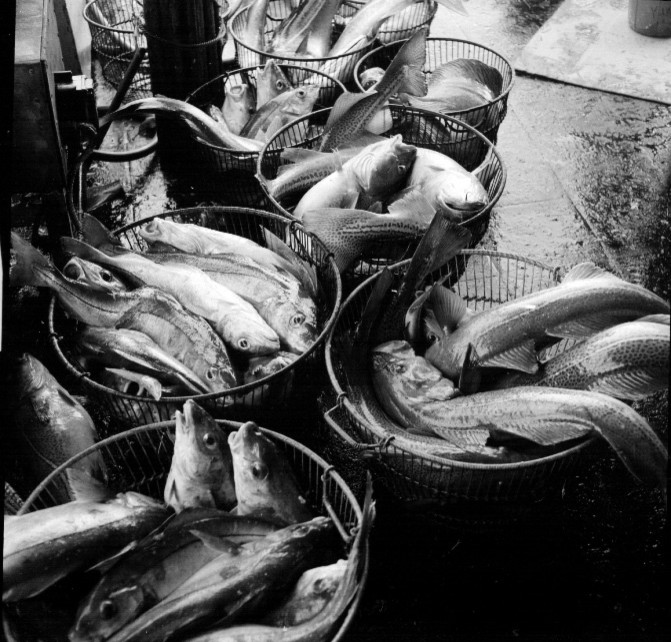New England Fishermen Upset Over Quota Reductions Of Cod Harvest

In three months, New England cod fishermen will have to drastically reduce the size of their harvests following a decision this week by the New England Fishery Management Council to make steep cuts to the amount of the fish that may be harvested every season.
By any measure, the council has adopted steep cuts, effective May 1: A whopping 77 percent cut down to 1,550 metric tons of cod from the Gulf of Maine and 55 percent to 2,506 metric tons of the same fish from the Georges Bank, off the coast of Cape Cod, Mass. The moves come after similar cuts were made to other lucrative fish species, such as flounder and haddock, by between 10 and 71 percent. The National Oceanic and Atmospheric Administration, which is involved in assessing the state of fish stock nationwide, is expected to support the move by the council.
The men and women of New England who depend on these harvests are not happy. The fishing industry in Maine employs about 10,300 workers and is valued at about $710 million, according to the Maine State Planning Office Coastal Program.
"This ruling will put many fishermen out of business," Angelo Ciocca, president of Nova Seafood in Portland, told the Portland Press Herald of Maine. "This is the end of the Gulf of Maine fishing industry. It's a sad day for New England, it's a sad day for fishing and it's a sad day for the country."
The decision comes after undisputed research by NOAA last year found that a 2008 assessment of the state of Gulf of Maine cod had overestimated the amount of the stock by over 300 percent – instead of 74.9 million tons, the new findings found that the number is more like 26.4 million tons.
The NOAA said that even with an immediate moratorium on cod fishing, it will take years for the number of fish to return to healthy, sustainable levels.
“There just isn’t a bunch of fish out there waiting to be caught,” said Rob Moir, head of the Ocean River Institute, a nonprofit group dedicated to sustainable development and environmental stewardship. “Some conservationists were saying you’ve got to close all fisheries, and of course you can’t do that to the fishermen. This has been a painful compromise where no one is happy.”
The compromise is an effort to stave off more drastic measures, such as the one Canada had to implement: a complete moratorium banning all cod fishing, a 400-year-old industry along the east coast of the country. Last year marked the 20th anniversary of the fishing ban, and only then were scientists saying that the fishstock was recuperating from massive overfishing in the 20th century.
"Biologically, ecologically we're seeing a major shift back to a system that will eventually become dominated by capelin (a staple of the cod diet) and cod,” George Rose, director of the Centre for Fisheries Ecosystems Research at Memorial University in St. John's, told Canada’s CTV in a report last summer. “I think we are seeing the beginnings of a recovery now."
© Copyright IBTimes 2024. All rights reserved.












